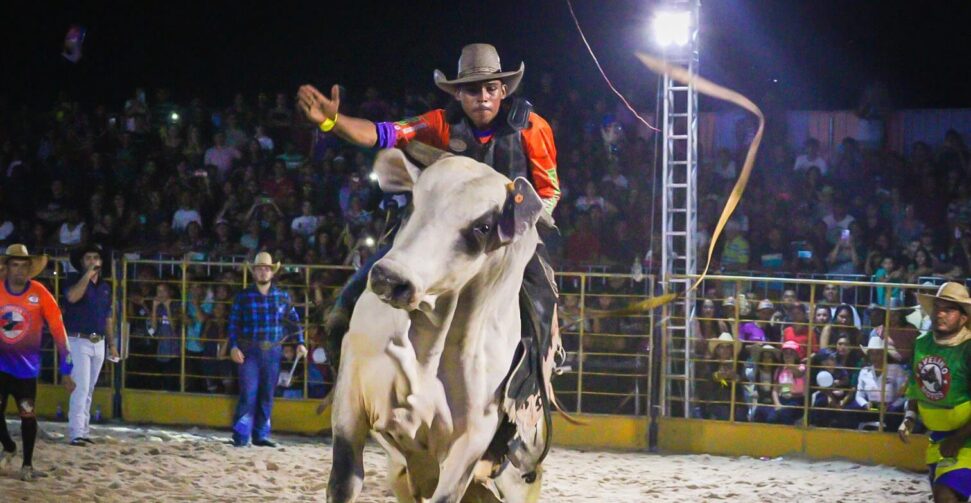Brazil Potash Executives Invited to Mura Indigenous Cultural Festival in Autazes
Brazil Potash Corp. has received a formal invitation from the Mura Indigenous Council (CIM) to attend the annual Mura Indigenous Cultural Festival (FECIM) on August 29th and 30th, marking a significant milestone in the relationship between the mining company and the indigenous communities in the Autazes region of Brazil.
The invitation, extended to CEO Matt Simpson, Interim President of Potássio do Brasil Raphael B
...
Brazil Potash Executives Invited to Mura Indigenous Cultural Festival in Autazes
Brazil Potash Corp. has received a formal invitation from the Mura Indigenous Council (CIM) to attend the annual Mura Indigenous Cultural Festival (FECIM) on August 29th and 30th, marking a significant milestone in the relationship between the mining company and the indigenous communities in the Autazes region of Brazil.
The invitation, extended to CEO Matt Simpson, Interim President of Potássio do Brasil Raphael Bloise, and Advisory Board Director Con Steers, includes participation in community events during the festival at Jair Tupinambá Park in Autazes. Additionally, the executives have received a separate invitation from the Tuxaua (chief) and leaders of the Aldeia Patauá village for a special lunch gathering in their community.
“We are deeply honored by these invitations from the Mura Indigenous Council and the leaders of Aldeia Patauá,” said Simpson. “This reflects the genuine partnership we have built with the Mura people and their continued support for our project. FECIM represents an important celebration of Mura culture and our shared commitment to sustainable development.”
The invitations come seven months after a significant Preliminary Cooperation Agreement was signed between Brazil Potash and the Mura Indigenous Council in January 2025. That agreement formalized the framework for a sustainable development program called “Mura Well Being,” aimed at creating positive social impact alongside the company’s mining operations.
The Mura Indigenous Council represents over 18,000 Mura Indigenous people across the Madeira River region in the Brazilian Amazon. Their involvement and support are crucial for the development of Brazil Potash’s flagship Autazes Potash Project, which aims to reduce Brazil’s heavy dependence on imported fertilizer.
Brazil, despite being an agricultural powerhouse, currently imports approximately 96% of its potash needs, creating vulnerability in its agricultural supply chain. The Autazes project represents one of the most significant mineral development initiatives in the region, with the potential to transform Brazil from a potash importer to a more self-sufficient producer.
Indigenous relations have become increasingly important for mining companies operating in Brazil, where legal frameworks require meaningful consultation with affected communities. The strengthening relationship between Brazil Potash and the Mura people demonstrates a shift in how resource companies are approaching development in indigenous territories.
Industry analysts note that this type of community engagement has become essential for mining projects to advance in Brazil’s regulatory environment, where indigenous rights have gained stronger legal protections in recent years. Companies that fail to secure social license to operate often face significant delays or complete project cancellations.
The invitation to participate in a cultural celebration suggests that Brazil Potash has made progress in building trust with the Mura people. Successful community relations in this context typically involve respecting cultural heritage, providing tangible benefits, and ensuring environmental protections that align with indigenous values.
For Brazil’s agricultural sector, domestic potash production could mean more stable fertilizer prices and supply security. The country’s farming industry, which accounts for approximately 25% of its GDP, has been vulnerable to global supply disruptions and price volatility in the fertilizer market.
The Autazes project is located in Amazonas state, approximately 120 kilometers southeast of Manaus. The deposit contains an estimated resource of over 500 million tonnes of potash, potentially making it one of the most significant new potash developments globally.
As Brazil Potash executives prepare to attend the cultural festival, stakeholders across Brazil’s mining and agricultural sectors will be watching closely. The event represents more than a cultural exchange—it symbolizes the delicate balance between mineral development, indigenous rights, and agricultural sustainability that will shape Brazil’s economic future.



17 Comments
Hope the special lunch at Aldeia Patauá is a step towards addressing long-term social responsibility in the region.
Wonder if this cultural engagement will translate into smoother regulatory approvals for Brazil Potash’s projects.
Possibly, but indigenous support doesn’t always guarantee bureaucratic cooperation.
This is a great step forward in fostering trust and collaboration between mining companies and indigenous communities.
Definitely. Strong partnerships reduce long-term risks and uncertainties.
How often do these festivals occur to maintain such relationships?
Great to hear about this partnership, but what concrete benefits will the Mura people see from it beyond these events?
That’s the real question. Symbolic gestures need to be backed by action.
This sets a positive precedent. Maybe other miners will take note and prioritize community engagement.
Unfortunately, too many still see engagement as a checkbox exercise.
Would love to see more companies follow this approach. It can’t be all about profits without considering the people impacted.
The festival sounds like an excellent opportunity for cultural exchange. Hope the executives take the time to learn and respect traditions.
Absolutely. Mutual respect is key to lasting partnerships.
Nice to see a mining company actively engaging with local communities. Too often these relationships are transactional.
Social license is just as important as permits in resource projects. This looks like a smart move by Brazil Potash.
This is more than just a PR move—real relationships take work. Kudos to Brazil Potash for committing time to build genuine connections.
Important to see both sides investing in these relationships. The invite from the Tuxaua is a strong sign of mutual respect.